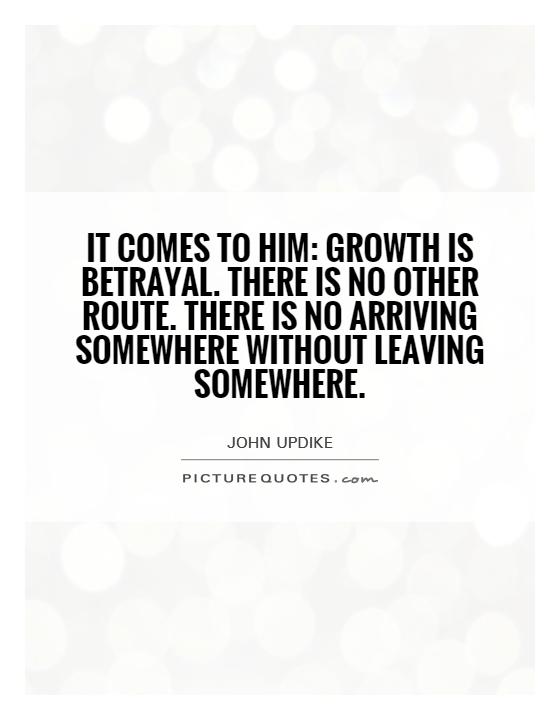It comes to him: growth is betrayal. There is no other route. There is no arriving somewhere without leaving somewhere

It comes to him: growth is betrayal. There is no other route. There is no arriving somewhere without leaving somewhere
John Updike, a prolific American author known for his keen observations of human nature and the complexities of relationships, often explored the theme of growth and change in his works. In his novel "Rabbit, Run," Updike delves into the idea that growth is inherently tied to betrayal and leaving behind the familiar in order to move forward.The quote "It comes to him: growth is betrayal. There is no other route. There is no arriving somewhere without leaving somewhere" encapsulates the central theme of the novel and reflects the protagonist's struggle with the inevitability of change. The character of Harry "Rabbit" Angstrom is a prime example of someone who grapples with the idea of growth and the sacrifices that come with it.
Throughout the novel, Rabbit is constantly searching for something more, something beyond his mundane existence. He is torn between his desire for stability and his yearning for something greater, leading him to make decisions that ultimately betray those around him. Rabbit's journey is one of self-discovery and transformation, but it comes at a cost – the betrayal of his family, his friends, and even himself.
Updike uses Rabbit's story to explore the complexities of human nature and the struggle to reconcile the past with the present. Rabbit's growth is a painful process, marked by moments of betrayal and loss, but it is also a necessary one in order for him to truly evolve as a person.












 Friendship Quotes
Friendship Quotes Love Quotes
Love Quotes Life Quotes
Life Quotes Funny Quotes
Funny Quotes Motivational Quotes
Motivational Quotes Inspirational Quotes
Inspirational Quotes